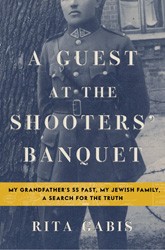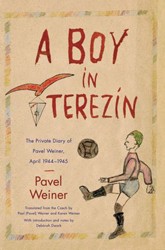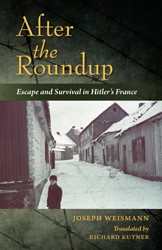By
– December 6, 2011
Holocaust survivors fall into two categories: those who feel they must share the horror of those days to prevent a repeat of history, and those who keep their experiences from everyone, even their own children, the second generation. There are many reasons, including guilt over having survived while millions died.
Paula Fass combines her skills as an historian, writer, and researcher with her position as a child of survivors with memories imparted by her parents to create an unusual memoir of being part of the “second generation.” Her exceptional skills as a writer make this book more than the usual random memoir of information.
Paula’s background is Polish. Her father had told her he had buried a large can of diamonds in the Lodz ghetto. He hated Poland; he even hated his good memories. He was urged to go back to Poland to retrieve his fortune. Paula and her sister offered to go. He said, “I will never go back and you would be wasting your time. It is not diamonds that I left behind.”
“Personal memory I knew to be an imperfect source, an untrustworthy connection,” she notes early in the book. She decides to go to Poland, with her grown daughter, “to link her mother’s memories and her daughter’s history.” She does so with her historian’s expertise and her second generation position filtered through third generation observations. Her artistic skill as a writer is well served.
Her trip to Poland in 2000 is spent searching for primary documents so that she might pass on to her children, not only personal recollections (mostly from her mother), but historical information these documents revealed. This was very important to her because she had lost siblings in the Holocaust.
Most portraits in a memoir are combined, usually near the end, like an album. Fass inserts them chronologically where they support the text. The result is a touching family story supported by historical fact. A comprehensive family tree in the appendix gives life to this family. As a history professor at the University of California, Berkeley and a sensitive and loving member of the second generation, Paula S. Fass is well qualified to tell her family’s story. Appendix.
Paula Fass combines her skills as an historian, writer, and researcher with her position as a child of survivors with memories imparted by her parents to create an unusual memoir of being part of the “second generation.” Her exceptional skills as a writer make this book more than the usual random memoir of information.
Paula’s background is Polish. Her father had told her he had buried a large can of diamonds in the Lodz ghetto. He hated Poland; he even hated his good memories. He was urged to go back to Poland to retrieve his fortune. Paula and her sister offered to go. He said, “I will never go back and you would be wasting your time. It is not diamonds that I left behind.”
“Personal memory I knew to be an imperfect source, an untrustworthy connection,” she notes early in the book. She decides to go to Poland, with her grown daughter, “to link her mother’s memories and her daughter’s history.” She does so with her historian’s expertise and her second generation position filtered through third generation observations. Her artistic skill as a writer is well served.
Her trip to Poland in 2000 is spent searching for primary documents so that she might pass on to her children, not only personal recollections (mostly from her mother), but historical information these documents revealed. This was very important to her because she had lost siblings in the Holocaust.
Most portraits in a memoir are combined, usually near the end, like an album. Fass inserts them chronologically where they support the text. The result is a touching family story supported by historical fact. A comprehensive family tree in the appendix gives life to this family. As a history professor at the University of California, Berkeley and a sensitive and loving member of the second generation, Paula S. Fass is well qualified to tell her family’s story. Appendix.
Arlyne Samuels a graduate of Brooklyn College, taught and supervised English in New York City for 40 years. She was the coordinator of the book club of the Greater Worcester (MA) Chapter of Hadassah. Arlyne passed away in May 2009 and will be missed by the Jewish Book World team.





